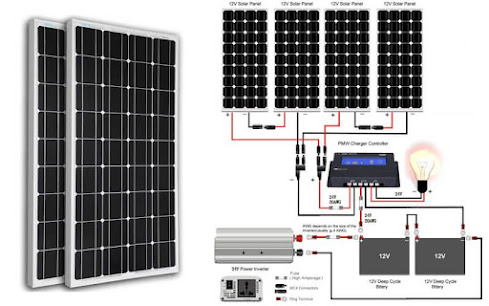The Working Principle of Sun Rain Solar Vacuum Tube Collectors
The
solar collector acts as an engine of any solar water heater. A solar
vacuum tube is the most efficient solar power production system; but was
more costly than flat panel system. With the immense popularity of
solar energy and modern manufacturing techniques, the solar vacuum tubes
cost less while ensuring the greatest return on the investment.
Working principle of SunRain solar vacuum tube collector
The
working principle of solar vacuum tube is simple. It works same like a
coffee thermos. A solar tube comprises of two layers of glass with
vacuum in between the layers. The outermost layer of the solar tube is
actually the Borosilicate glass that has very iron content and allows
around 98% energy to pass through. In fact the innermost layer has very
special coatings applied to it.
The
SunRain solar vacuum tube collector available at Northern Lights uses a
patented three layer process that ensures a coating to absorb enough
solar energy while withstanding temperature up to 575F. This type of
coating makes them superior to any solar collector available on the
market. The selective coating convert short wave solar radiation into
long wave heat radiation and is almost 94% efficient that means only 6%
of the solar energy is lost.
The
solar radiation absorbed by the solar collector is then transferred to a
heat transfer fluid in the tube like the liquid inside the thermos.
This liquid heats up quickly and emerges to the top. However, the
potable water is heated within the vacuum tube in an open vacuum tube
system. The presence of Thermosiphon makes the hot water to rise and be
replaced by cold water. Then, the hot water is collected in the top
chamber and pumped throughout the system.
The Efficiency of Heat Pipe Technology
Does
the most efficient heat transfer technology available for solar system
on the market currently? Instead of water flowing in the center of the
vacuum tubes, a hollow copper tube is inserted along the length of the
vacuum tube.
This
tube contains a small amount of special liquid that works as a heat
transfer medium. The hollow chamber is created under vacuum conditions
that make the fluid to vaporize even ay lower temperatures (30C or 86F).
In
fact, the vapour starts rising to a heat dissipater where it is cooled
down to liquid. Generally, copper heat pipes are utilized as they can
absorb and transfer heat effortlessly without losing any energy
virtually.
However,
the heat pipe technology ensures an indirect energy transfer to the hot
water system. It’s commonly used in systems that need a heat exchanger
like a close loop system. Any hot water system that is designed to work
in freezing conditions will require using heat pipes as antifreeze
should be utilized.
Therefore,
the water should be separated from the heating system through a solar
heat exchanger. After looking at all these things, it’s clear that heat
pipe systems are more efficient than open vacuum tubes and come along
with a significantly higher price with the additional copper materials.
Final Thought –
Want
to know more about solar vacuum tube collectors? It’s time to check out
SunRain solar vacuum tube collectors at Latitude51 Solar and make a
perfect selection. For immediate help, please visit our website.


Comments
Post a Comment